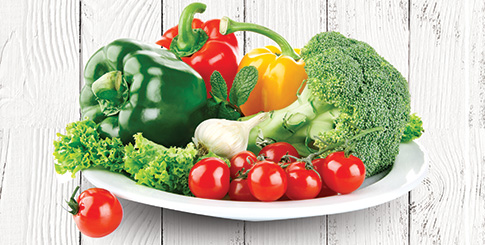R&R Flaim takes sustainability and waste reduction seriously too. The grower’s approach starts in the field with biodegradable products like mulch and black plastic, then extends to the pack house and delivery to retailers with exchangeable plastic totes. Once the product is delivered to a retailer, the store folds the totes flat, they’re sanitized, then shipped back to the grower. “It’s an important thing because we’re cutting down on a lot of packaging waste—it’s not being disposed of, or recycled, but reused,” Flaim says. But bottom line, he notes, is “people are more conscious of what they’re buying.”
Food Safety & Pest Management
With food safety continuing to be “a hot topic for produce growers across New Jersey,” according to Beaver—and even more so after the recent romaine lettuce E. Coli outbreak—the state’s Department of Agriculture offers extensive education and training aligned with the Food Safety Modernization Act (FSMA) and its various rules and regulations. This year, Beaver says a new support feature has been added, offering ‘On-Farm Readiness Assessments’ for interested growers.
“The concept is simple: our staff, along with food safety experts from Rutgers University, will visit participating farms throughout the growing season for voluntary, fully confidential site inspections to walk them through the requirements for FSMA and provide guidance on any adjustments that may be necessary to come into compliance,” explains Beaver.
Rutgers University also provides an integrated pest management program that local growers take advantage of. R&R Flaim has already jumped on board: in addition to using bug traps made from strips of natural vegetation, the company has been using the Rutgers program for nine years.
Instead of “just spraying on a regimented schedule,” Flaim says fields are scouted for specific pest or disease problems and then recommendations are made by Rutgers experts, so the grower uses only what is needed and can reduce unnecessary applications.
Labor & Transportation
Shortages in quality labor continue to hit a nerve for the produce industry, and those in Jersey are not immune to the plight. Until there’s a better policy in place, Nardelli says of the upcoming season, “It’s going to be hard to secure a work force to harvest these vegetables.”
Fresh Wave works to combat the deficit by keeping “crews 12 months out of the year to avoid seasonal gaps and labor shortages,” according to Consalo.
Eastern Propak’s Danner expresses concern for the increasing minimum wage. “It’s only a matter of time before they affect our contract labor and how I compensate my people,” he says. The trouble arises when surrounding states like Pennsylvania and Delaware are not under the same mandates as New Jersey.



